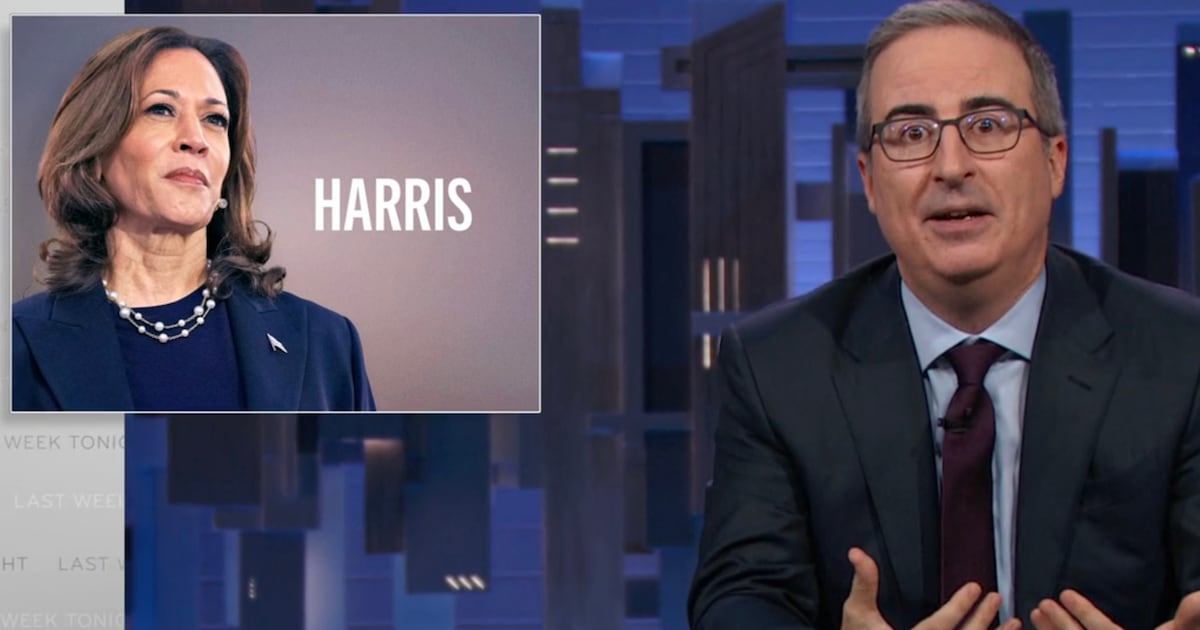James Corden is about to open the big-screen adaptation of the quintessential Stephen Sondheim musical Into the Woods, in which he sings a song with Meryl Streep. Three months later, he will greet TV audiences for the first time as the new host of CBS’s The Late Late Show, on which he is set to replace Craig Ferguson.
Already a Tony Award winner and one of the U.K.’s most popular comedic actors, Corden is about to be huge in the United States. And he’s being positively British about the whole thing.
“They should lower their expectations,” Corden says with a laugh not quite hearty enough to make you think he’s joking humbly.
ADVERTISEMENT
It’s a day after Into the Woods held its first screening for critics and we’re in a New York hotel suite chatting about the Great Big Year ahead for him. I tell him about the sighs of relief that echoed throughout the theater the night before from fans upon realizing that director Rob Marshall had not, in fact, bastardized their cherished musical, nerves that were stoked after reports of his changes leaked and caught fire. He’s, of course, relieved about that, though he admits that he tried doggedly to shield himself from the social media din over that was prematurely condemning the film.
“You might as well punch yourself in the face,” he says when asked if he read about any of the controversy.
Then I tell him about the murmurings behind closed industry doors about how big of a splash his late-night hosting gig is expected to make. He’s flabbergasted, and it seems genuinely so.
Much like it was when his predecessor, Scottish born comedian Craig Ferguson, began his late-night run in 2004, the announcement that Corden would host The Late Late Show was met with an appropriate mixture of delight and surprise. Delight because those familiar with Corden’s comedic genius had an inkling of what could be in store. Surprise because the most common response when someone brings up James Corden is: “Who?”
The truth is, though, that the 36-year-old Brit may be the most well-groomed first-time late-night host broadcast TV has had the wisdom to hire in recent years.
He’s about as well-rounded a performer as there comes, having mastered in the U.K. the art of the romantic comedy (Gavin & Stacey, which he co-created), drama (The History Boys, in which he starred in the original cast), and emceeing (having helmed The BRIT Awards on three occasions). Having starred in the movie musical Begin Again opposite Keira Knightley in addition to tackling one of Sondheim’s greatest scores in Into the Woods, he’s primed to threaten Jimmy Fallon’s reign as late-night’s musical king, too.
Despite all of this, Corden has been steadfastly on an anti-buzz campaign in the lead up to his Late Late Show debut, squashing lofty expectations at every chance. The result is a rather endearing blend of excitement, gratitude, terror, and relentless humility about the whole thing.
“It’s not every day that someone will offer you something like this,” he says, when I bring up some comments that taking on the talk show might hurt Corden’s blossoming acting career. The past few years have, after all, seen him defeat theatre titans James Earl Jones, Philip Seymour Hoffman, Frank Langella, and John Lithgow at the 2012 Tony Awards for his raved about performance in One Man, Two Guvnors, and then parlay that into the lead role in a Rob Marshall movie musical where Johnny Depp and Meryl Streep are supporting players to him.
“If I turn it down, Les Moonves doesn’t come back in five years and go, ‘Let’s go back to that guy who turned us down five years ago,’” he says. “This isn’t a play or a movie. These seats are prized things and it’s not lost on me what an honor it is to be in one of them.”
Then come the doubts. “Do I think it’s going to work? Genuinely, honestly, I’m not sure,” he says. “I don’t know if it will. I don’t know if people will take to me. Why should they? I’m just a guy from High Wycombe.”
Corden is keenly aware that his self-deprecation and aggressive humility could smell like press-junket bull meant to make himself sound likable, and he repeatedly stresses that he’s not reciting a PR script. He becomes especially earnest when the conversation turns to his role as The Baker in Into the Woods.
Bleary-eyed doesn’t even begin to describe Corden as his weekend of press, the first of many in the upcoming awards season, draws to a close. Not only is the actor facing a firing squad of questions from a musical chairs of journalists, he also welcomed a baby daughter, his second child, just 21 days before.
Not that he’s complaining. “I always find it weird when actors moan about things like this,” he says. “You have to remember what you want to moan about. These are very high class problems, being in New York and being in a film that people want to talk about. Most films that are made would give their right arm to get some sort of press or big release or anything.”
Corden has actually been attached to Into the Woods since the first reading of the screenplay two-and-a-half years ago. His history with the musical, however, dates farther back. He saw his first production of Into the Woods in a tiny town outside London was he was 19 years old, and knew instantly that the Baker was in his future.
It’s not an easy role to play. The Baker is very much the Everyman, the stand-in for the audience’s trepidatious journey into the woods, but he’s hardly of the bland or milquetoast variety that trope typically suggests. He’s greedy and regretful and romantic and boneheaded and, in the end when the story turns and the woods become a darker place to travel, even a hero.
“The truth is, in most films characters like him aren’t the hero,” Corden says. “In fact, in this mystical, fantastical piece is a truer representation of what actually happens in life than ever happens in most movies. When you watch footage of any disaster, you will see that the people running towards the fire, the people running into the building are your regular guys. The most ordinary men.”
Impassioned, he goes on. “It’s never your heads of state. It’s never your hot spy. It’s the guy on the ground, who doesn’t want to run in. He doesn’t want to do it. He’s terrified. But he knows that this is what he has to do, so he rolls his sleeve up.” The Baker is a hero, arguably. But he’s not a one-note cliché. “He’s flawed in the way we all are, and he’s brilliant in the way we can be.”
That sums up The Baker’s transformation from despicable—he nearly deserts his newborn child, repeating the mistakes his father made with him—to noble in the last act of the film. In fact, the musical’s more poignant ruminations on fatherhood and happiness seem to be having an effect on Corden, whether or not he’s cognizant of it, as he starts thinking about his new child and his exploding career success. The conversation turns back to The Late Late Show.
“I have a three-year-old son. I have a 21-day-old baby daughter. And I have a wife who needs me around,” he says. “And here is someone offering me an opportunity where I get to be creative every day—more creative than ever get to be filming something—and silly every day and if I’ve got something to say I can say it. Then, at the end of the day, I get to go home and see my children and be a present father.”
As he goes on, it’s almost as if Sondheim is scripting Corden’s thoughts.
“They didn’t ask to be born,” he says. “I knew what I was doing when I decided to become a dad, and that’s just to be there for them. No one’s ever sat in therapy and gone, ‘You know my parents were just around too much and they cuddled me too much and gave me too much love.’ That’s all that really matters, and that they’re happy.”
It’s an enlightenment that is perhaps beneath his underplaying of the buzz for The Late Late Show.
“Everything else, this is transient shit that will come and go,” he says. “And it will go as quickly as it comes. All these people who are excited for me, when the show is a disaster—which it will be—they’ll be like, ‘Oy, I thought he was going to be great but this was awful!’ I’ll try my best and if it doesn’t work I’ll try to do something else.”
James Corden’s story may only be beginning, but he seems to already be at happily ever after.





